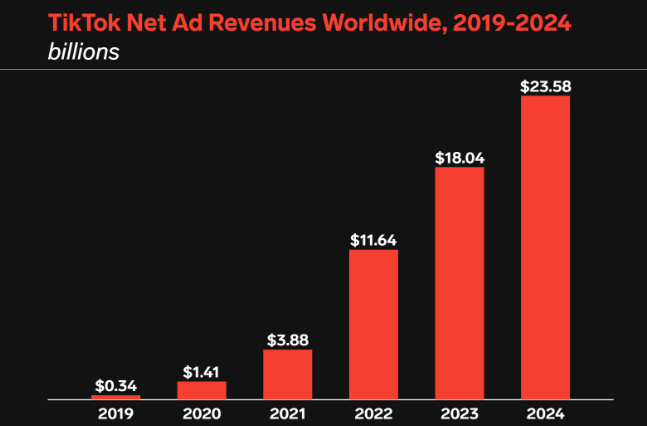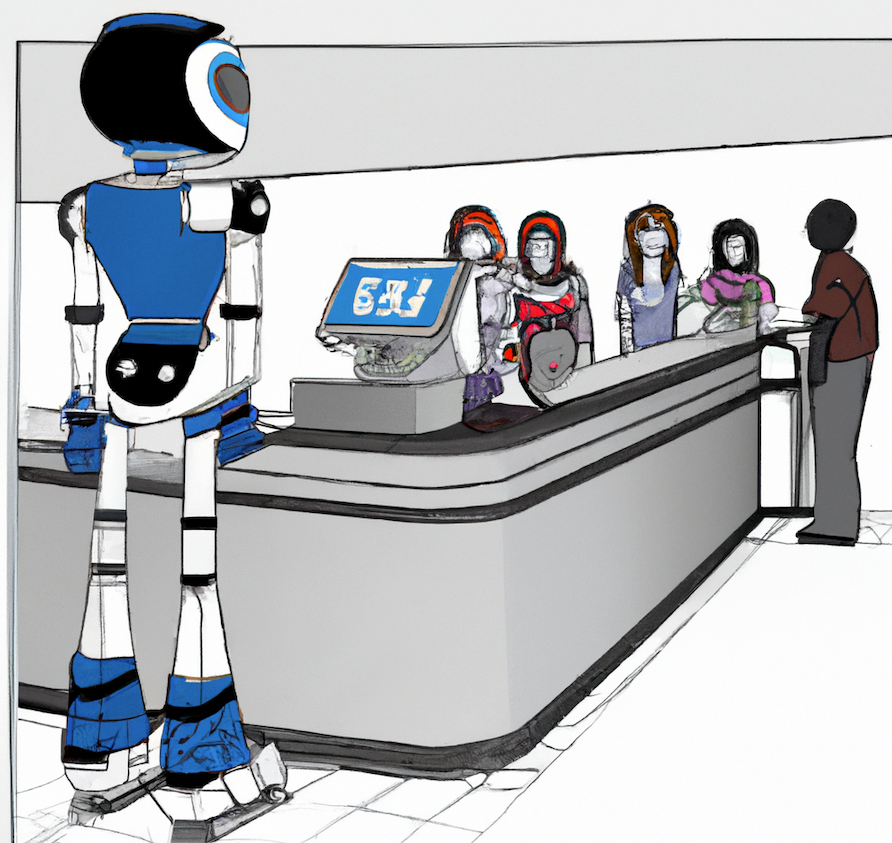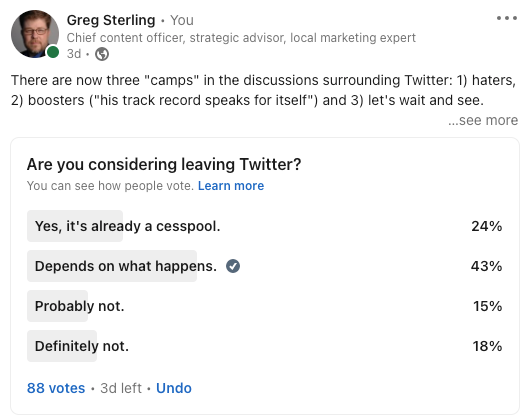TikTok SMBs, Retail Automation and CX, Twitter Opportunity

TikTok's SMB Opportunity
TikTok is getting more local. Beyond isolated but dramatic SMB success stories (e.g., Nerdy Nuts) or experimental features (e.g., TikTok Nearby), I'm seeing more local content in my feed. Recently that included an ad from a local HVAC installer. (Adam Dorfman outlined the local TikTok opportunity in a piece for Near Media in February.) Now, apartment marketing platform Rent. is bringing local apartment listings to the platform. Next year we should see more franchise and multi-location brands on TikTok, both organically and in campaigns. It's tricker for small businesses, which need to master ad targeting and video content creation, or work with established influencers. The latter is probably the easiest way to get started for SMBs, who according to Deutsche Bank generate 75% of Facebook's ad revenue. If correct, that's $86 billion (2021). By comparison, TikTok ad revenue is expected to reach $11 billion in 2022.

Our take:
- If TikTok can attract a fraction of SMB marketers to the platform that represents billions in new ad revenue.
- There's work to be done in SMB education and simplification to make general marketing, finding influencers and creating ads easier.
- On the consumer side, TikTok continues to miss out on an opportunity to optimize local content for Google search.
CX: Machines vs. People
COVID indisputably accelerated "digital transformation." Retailer investments in e-commerce, click and collect and in-store digital integration recognized, belatedly, that consumers want convenience and integrated shopping experiences ("unified commerce"). But digital transformation is also synonymous with automation for companies looking to reduce headcount. According to a global survey from Zebra Technologies, 82% of retail decision-makers will increase tech investments in the next three years, while 45% will convert more cash registers into self-checkout stations. Check-out innovation is welcome, but marginalizing humans in retail environments will ultimately degrade customer experiences. Any backlash may be generational, with younger users more accepting of technology replacing people. Yet, increasingly, customers are being asked to do what company employees used to do.

Our take:
- Tech tools, self-service and automation can certainly improve customer experiences, though actual execution is often weak.
- Automation, such as self-checkout, is sold as pro-CX (e.g., JustWalkOut). Its main agenda is to reduce headcount requirements.
- Human customer service is increasingly a luxury that users must pay a premium to access. Retailers shouldn't conflate CX with technology.
Twitter Drives Opportunity – for Others
Half of Twitter's 7,500 employees reportedly got layoff notices this morning. The rest will be compelled to return to the office. The mass layoff, already prompting a lawsuit, comes after little or no employee communication from Elon Musk and his Star Chamber of acolytes. (He's running a master class in how not to manage people.) I asked on Twitter how many employees would remain after layoffs. Most people guessed correctly, saying about 4,000 (50% is 3,750). In a LinkedIn poll, I also asked whether Twitter users were considering quitting. The largest group (43%) said they plan to wait-and-see. Another 33% said they'd stay and 24% said they were leaving. Many advertisers have expressed unease or have paused spending to see how moderation proceeds. Meanwhile, as some users abandon Twitter, other networks appear to be benefitting: Substack, Mastodon.

Our take:
- Other than those with cult-like devotion to Musk, Twitter's remaining employees will be demoralized/less productive (at least in the near term).
- Musk could make positive improvements. But trust/confidence may be hard to repair and there's now pent-up demand for alternatives.
- A year ago the social media landscape was fairly stable. Amazingly, now it's much more competitive and almost completely in flux.
Recent Analysis
- Semantic Photography: How to Increase GBP Conversions, by Mike Blumenthal.
- ICYMI: How Might TikTok Embrace Location-Based Marketing? by Adam Dorfman.
Short Takes
- "Dying mall" tweet prompts users to share Google frustrations.
- Google to deemphasize links (somewhat) as a ranking factor.
- Google's moving to continuous, real-time algorithm updates?
- Google: Don't use keyword search volume to drive content strategy.
- DoorDash revenue, user growth defy food-delivery slowdown.
- Amazon and Snapchat partner on AR eyewear try-ons.
- WhatsApp rolls out pre-announced group-chat feature Communities.
- DALL-E's AI-image generator now has an API for developers.
- Consumers getting more sophisticated avoiding paywalls.
- TikTok tells Europeans their data may be viewed in China.
- As e-commerce stumbles, Wayfair is bleeding customers.
- Matter interoperable standard may accelerate smart home adoption.
- Layoffs.fyi: Your comprehensive guide to layoffs in the tech industry.
- Opinion: We've entered a new era of "technofeudalism."
- Smartphone holiday purchase intent is high according to survey.
Listen to our latest podcast.

How can we make this better? Email us with suggestions and recommendations.

